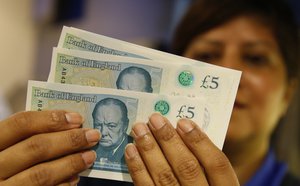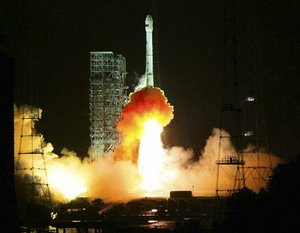Union
Union is the state of being united or joined.
Union may also refer to:
Labor
Education
History and politics
- Union (American Civil War), the United States government and the 25 states that remained loyal to it during the American Civil War (1861–1865)
Union (Toni Childs album)
Union is the debut album of the American singer/songwriter Toni Childs. Released in 1988, the album peaked at #63 in the US (where it has since been certified Gold for sales of over 500,000 copies). It also peaked at #1 in New Zealand where it was certified 5x Platinum (75,000 copies sold).
The album was recorded in London, Paris, and Swaziland. Following its release, Childs was nominated for two Grammy Awards (for 'Best New Artist' and for 'Best Rock Vocal Performance (Female)' for the single "Don't Walk Away").
Track listing
All songs written by Toni Childs and David Ricketts except as indicated.
Personnel
Union (Madagascar)
Union (Tambatra) is a political party in Madagascar. The party's candidate Pety Rakotoniaina won 1.68% in the December 2006 presidential election. Since the 23 September 2007 National Assembly elections it is no longer represented ij parliament
References

Rebellion
Rebellion, uprising, or insurrection is a refusal of obedience or order. It may, therefore, be seen as encompassing a range of behaviors aimed at destroying or taking over the position of an established authority such as a government, governor, president, political leader, financial institution or boss. The methods can be peaceful, such as civil disobedience, civil resistance and nonviolent resistance, or violent, such as terrorism, sabotage and guerrila warfare. Those who participate in rebellions, especially if they are armed, are known as "rebels".
Throughout history, many different groups that opposed their governments have been called rebels. Over 450 peasant revolts erupted in southwestern France between 1590 and 1715. In the United States, the term was used for the Continentals by the British in the Revolutionary War, and for the Confederacy by the Union in the American Civil War. Most armed rebellions have not been against authority in general, but rather have sought to establish a new government in their place. For example, the Boxer Rebellion sought to implement a stronger government in China in place of the weak and divided government of the time. The Jacobite Risings (called "Jacobite Rebellions" by the government) attempted to restore the deposed Stuart kings to the thrones of England, Ireland and Scotland, rather than abolish the monarchy completely.

Rebel Alliance
The Alliance to Restore the Republic (commonly known as the Rebel Alliance, and, informally, as the Rebellion) is an interstellar faction of the fictional universe of Star Wars.
As a direct reaction to the Galactic Empire, the Rebel Alliance warred against the Imperial Fleet throughout the Star Wars galaxy to restore the ideals of the Old Republic. The Rebel Alliance was first featured in the 1977 film Star Wars as the main protagonists as well as its sequels: The Empire Strikes Back (1980) and Return of the Jedi (1983). The faction's origins were alluded to in Star Wars Episode III: Revenge of the Sith (2005) and their early activities are featured in the Disney XD television series Star Wars Rebels. With the advent of the First Order decades later, an army backed by the New Republic called the Resistance is formed to counter their advance, including members of the old Alliance among their ranks, and first featured in Star Wars: The Force Awakens (2015).
History
The first antecedents of the Alliance to Restore the Republic are told during the events of Revenge of the Sith. It is explained (in scenes that were mostly cut from the theatrical version) that the Delegation of 2000 is a group of Senators who are disgruntled about the already unjustified extraordinary powers of Supreme Chancellor Palpatine as the Clone Wars were waning. The group included Padmé Amidala, Garm Bel Iblis, Mon Mothma, and Bail Organa, amongst others. Amidala was, at the time, the most famous and prominent of the group, and was thus their spokesperson, but she realized that this made her a target and later advised the others to go quiet in their dissent and exclude her from any future proceedings. The young senator died in premature childbirth not long after her last-ditch attempt to prevent Anakin Skywalker's fall.

Law & Order (season 6)
The sixth season of Law & Order aired on NBC between September 20, 1995, and May 22, 1996.
Cast
Rey Curtis (played by Benjamin Bratt) replaced season 5's Mike Logan (Chris Noth) in the role of junior detective. This change left District Attorney Adam Schiff (played by Steven Hill) as the only remaining member of the series' cast from the first season. Hill was not an original member of the cast as his character replaced D.A. Alfred Wentworth (played by Roy Thinnes) from the original pilot, "Everyone's Favorite Bagman". Paul Robinette (played by original cast member Richard Brooks) returns in the episode "Custody", his first guest appearance after his departure after season 3.
Main cast
Recurring cast
Union
Union is the state of being united or joined.
Union may also refer to:
Labor
Education
History and politics
- Union (American Civil War), the United States government and the 25 states that remained loyal to it during the American Civil War (1861–1865)
Latest News for: rebels union
Angola rebel Savimbi gets reburial 17 years after death
Divisive Angola rebel chief gets public burial 17 years after death
Desperate Idlib residents launch protests on Syria-Turkey border
Prahlad Patel, former student leader of the youth wing of the BJP, joins PM Modi's...
Mix of old and new faces in PM Modi's NDA 2.0
Ambareesh's die hard fan buys his son Abhishek's film Amar's ticket for an excessive price
Late Rebel Star Ambareesh has a cameo in his son Abhishek's film Amar reveals director Nagashekar
Stroud signs to USC Union
Livingston signs to USC Union
What Next in Europe?
Stroud signs with USC Union
Livingston signs with USC Union
- 1
- 2
- Next page »
Article Search
Most Viewed
WorldNews.com | 05 Jun 2019
The Independent | 05 Jun 2019
The Independent | 05 Jun 2019
WorldNews.com | 05 Jun 2019





































